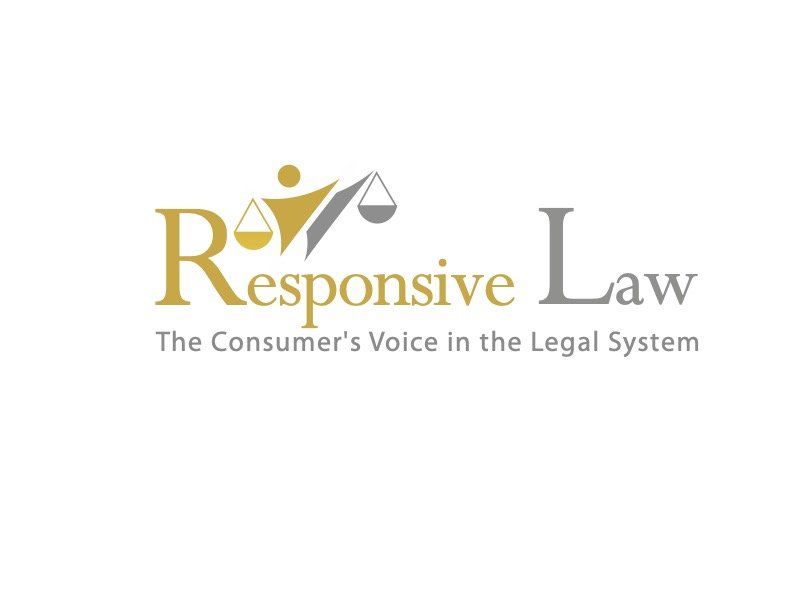Crispin Passmore

The Legal Tech Fund ran the best event for innovators int he legal market that I have found. TLTF 2023 was a a great opportunity to learn new things but best of all were the connections made and friends seen. These enabled new discussions and deeper debates about technology, capital deployment and liberalisation. TLTF 2024 is just one year away - I'm already excited.

I have blogged several times on the introduction of Solicitors Qualifying Examination (SQE). I have made the point that SQE shifts power towards trainees and candidates by removing law firm or solicitor control on the number of people that qualify as solicitors. To refresh, a paralegal or aspiring solicitor does not need their employer’s permission to learn the skills, gain the knowledge, develop the behaviours and build the experience to pass SQE. What the candidate does need is a solicitor or the firm’s Compliance Office for Legal Practice (COLP) to 'sign-off' (the correct term is confirm) the qualifying work experience (QWE). That raises some issues and, in my view, some confusion that I want to tackle. In particular I hear that some law firms are making a policy decision to not confirm QWE for some paralegal cohorts of their staff. That should be explored and challenged. What is the solicitor or COLP confirming when signing the relevant form for a period of QWE? They are not confirming that the aspiring solicitor is good enough to become a solicitor. They are not passing or failing the aspiring solicitor. They are not saying that the candidate was competent. In signing off a period of QWE the solicitor or COLP is confirming to the SRA: • The length of work experience carried out. • That the placement provided the opportunity for the individual to develop some or all of the competences outlined in the Statement of Solicitor Competence. • That no issues arose during the work experience that raise questions over the individual's character and suitability to be admitted as a solicitor or if such confirmation cannot be given, then details of any such issues. None of this is to say that competence or breadth of knowledge do not matter. Rather it is that the new system shifts that assessment from thousands of law firms and solicitors (a system that does not provide any comfort to the regulator on consistency and standards) to a centralised assessment. So why might a law firm decide, as a matter of policy, that it will not confirm an aspiring solicitor’s QWE? There are two broad groups of aspiring solicitors in a law firm. The first is the cohort that the law firm has decided are on an ‘official track’ to qualification – what they still seem to call training contracts. The other group are the paralegals that are employed to do legal work. Those paralegals may be in the core of a law firm, in its onshore managed legal services arm or elsewhere in the business. There is of course no SRA mandated ‘official track’ to qualification – that is one of the liberalisations or flexibilities built into SQE. Firms may select people to follow their internal route to gaining QWE and preparing for SQE assessments, but that is not an ‘official’ route. Candidates from the paralegal side of the business will no doubt think that if their work falls within the definition of QWE it would be absurd for firms to block that counting by refusing to confirm it. I would add that there is something very odd about a law firm having a policy of confirming QWE for people it has selected as aspiring solicitors but refusing the same to candidates who are forging their own path, using their entrepreneurial effort to own and develop their own career. That doesn’t even begin to examine the potential discrimination law issues that might arise from treating these two groups differently. I suspect that law firms might be worried about the burden of supervising and confirming QWE. If that were the case they would be wrong. They are already supervising their paralegals. And if they are a good employer they will also be focused on developing their people. Refusing to confirm QWE for paralegals risks the law firm looking (at least to its staff and potential recruits) that they do not really value their paralegals. At a time that alternative legal service providers are exploring how to use SQE to attract and develop paralegals, offering them a route to qualification, it would seem an own goal for law firms to hand that point of difference to their competitors. If a law firm has lots of aspiring solicitors in its workforce it should be pleased. Most employers make a lot of effort to up-skill their workforce and would be a jealous of an employer with lots of staff taking the initiative and driving their own development. Perhaps law firms fear that they will just be helping paralegals to leave once they qualify. Better to think about how they might retain those that qualify – that requires a rethink of workforce strategy and probably a little blurring of the boundary between paralegal, trainee solicitor, newly qualified solicitor. It always struck me as odd that law firms are more focused on qualifications than job role – what they’ve done rather than what they do. The SRA in its guidance on QWE highlights that the confirmation requires some sort of due diligence but it is not burdensome: • Directly supervising the individual's work (although this is not a requirement of confirming QWE). • Reviewing the individual's QWE training template, training diary, learning and development record or work portfolio to make sure they had the opportunity to develop some or all of the competences. You may want to check that the experience claimed has been appropriately evidenced. For example, does the experience described or provided relate to the competence. • Confirming with your organisation's HR team that the placement details are accurate and whether any character and suitability issues arose. • Speaking to the person or persons directly supervising the individual's work. There are also ways to minimise any perceived or real burdens on firms and their supervisors. They can encourage their staff to use an online journal to record their QWE in a standardised format. Flex offers an SQE QWE journal that is easy to use and can help candidate and supervisor alike. It provides functionality that allows candidates to record their QWE, reflect on their experience and be SRA ready. Why wouldn’t a law firm want its paralegals to be doing this? Firms worried about the burden could even ask Flex to manage their paralegals QWE on their behalf – it just needs a bit of imagination. With a little investment it is possible even to design reward and retention packages that include development towards qualifying as a solicitor. It seems to me a bad idea to refuse to confirm paralegals’ QWE as a matter of policy. I also think it risks putting a firm and supervising solicitor in breach of their regulatory obligations. The SRA has said this about a solicitor not confirming QWE: Consider whether you are you complying with our Principles and Code of Conduct for Solicitors to act honestly, fairly at all times and not to abuse your position by taking unfair advantage. For example, refusing to confirm QWE that meets our criteria simply in order to retain an employee in a non-qualified position would be a clear breach of our Principles and Code. We may take action against a solicitor or COLP who does not meet their regulatory obligations when confirming QWE that meets our criteria. [My emphasis]. So refusing to confirm QWE (that meets the SRA’s requirements) is not only a bad idea it isn’t very ethical. If this is a policy decision that is being taken then those firms and solicitors should rethink.

Two recent reports have shone a light on lawtech, its potential to help business and individual consumers and the barriers to its adoption. First is a report by LawtechUK , part of UK Government’s TechNation programme to support digital advancement in major sectors of the economy. The other is a research report produced by a team led by Professor Mari Sako of the Said Business School at Oxford University. The LawtechUK report highlights seven priority areas for the legal and justice system: investment; new markets; data; technology awareness and capability; policy and regulation; and, sustainable growth. Its leader, Jenifer Swallow (who has been there and done this with a career as a GC) argues that a collaborative and concerted effort could deliver 20 years of progress over the next 5 years. The Professor Sako report identifies lawtech trends, including that ABS were more likely to be using lawtech and innovating. This echoes previous independent research and will end any debate about the benefits of ABS. As an aside, when will all US State Bars finally accept that liberalising legal markets can help improve the legal market for the benefit of clients, lawyers, law firms and legal businesses? This report really gets into the detail of why firms use law tech, why some don’t and what the impacts are. The challenge of reaching scale is clear and I would suggest that is why the US is so important given its population size, huge unmet legal needs and fabulous record in legal technology and innovation (see Rocket Lawyer , Legal Zoom , Hello Divorce just for starters even though they cannot actually practice law directly). I don’t intend to cover the reports in full – they need your full attention to cover everything. But I do want to focus on the policy response in relation to regulation. Both reports make some suggestions, but I want to go further and put the arguments for more liberalisation. Experience tells us that technology can improve outcomes for clients in many markets. But that is not the same as price reductions. Technology might also improve the quality or consistency of a service, reduce risks for providers or consumers, or support improved specifications of a product or service. These are all good outcomes but one of the key issues in legal markets around the world (and more so in those most protected from competition such as the US) is that individual and small business consumers do not have access to services that they can afford. Those consumers need scaled back, stripped bare, legal services that are low cost and easy to access. The reality is that there is very little incentive for law firm incumbents to develop such services. And the tougher truth is that they don’t really have the access to long term finance, nor the strategic horizons, that would allow them to make the investments in technology and pursue the scale that makes such opportunities viable. Professor Clay Christensen talks about this in his work on disruptive innovation – easily accessed in this short animation from the Harvard Business Review. If we are to harness lawtech to solve the wicked problem of access then we need to accompany investment with serious liberalisation. We need new business models, larger external investment, expertise in technology and experience of boot strapping start-ups. Allowing non-lawyer ownership, fee-sharing and To many this is obvious but let us contrast it with the Law Society principles for the deployment of AI that they have just published . The guidance is not just unrealistic but absurd. Should lawyers really be under an obligation to explain to the client how the tech they use works? Do they explain how e-mails travel through the internet, how encryption on their servers works, or how cyberattack detection works? Do law firms explain how the technology that powers their case search tools work? Of course not, so why have to explain how their new lawtech works? What counts is the outcome – good enough quality and price combined with adherence to ethical standards. What is alarming is that the Law Society papers is heavily referenced to regulatory obligations - seeking to give it a status and force that it neither has nor deserves. The SRA (the actual regulator of solicitors and law firms) has a set of Standards & Regulations that are broadly outcomes focused and its guidance has typically sought to set law firms free on law tech (see for example here ) - though as I explore below there is more to do. In many ways the Law Society paper reveals a lack of understanding of lawtech: they seem to be focused on mythical robo-lawyers rather than the everyday and emerging tech that helps solve day to day problems. It is as if lawtech is artificial intelligence before it is deployed but once it is in regular use it is just tech and gets accepted. The Law Society risk overthinking the technology that is available, useful and relevant. I think the SRA gets this and they will be focused on how they build confidence of firms to use technology that focus on everyday problems - like that offered by Legl (client ID, KYC, digital workflows etc) rather than how to deploy Google’s Deepmind - though that could undoubtedly do much for the legal market. The Law Society, echoing the American Bar Association, is so intent on spoon-feeding their members that they risk reducing them to passive participants in the market. This sort of top down, overly prescriptive, risk averse professional body behaviour is at the core of what stifles innovation in overly regulated markets. Any firm or lawyer relying on the Law Society (or ABA) for permission to innovate will be paralysed while disruptors just get on with deploying technology to solve their clients’ problems. So the first part of my prescription is for all lawyers and law firms to ignore the Law Society – though any sort of intelligence in Chancery Lane – artificial or real – would be a welcome development. The SRA really does need to distance itself from the Law Society report and the Legal Services Board needs to tell them to stop issuing guidance that is not consistent with regulatory intentions and obligations. Second is to challenge Government. It should focus on removing regulatory restrictions that are set in legislation. Anything that gives a monopoly to a small group of law firms needs revisiting so that we generate more new entrants, create smoother paths for entrepreneurs, innovators and investors - be they lawyers, technologists or private equity. I would start with removing conveyancing and probate from the list of reserved activities. The key risks in these areas of practice are handling client money, enforcing undertakings, and effective legal administration (be it via title of property or effective grant of probate). Third party managed accounts (a form of escrow) can reduce the financial risks. A recent Supreme Court decision has blown open the undertakings issues (see this blog by Iain Miller) and legislation could bring a promise by any adviser relating to a conveyance under the supervision of the Court. Government agencies are already managing administrative quality more effectively than regulators simply by rejecting and correcting errors by solicitors. Removing the lawyer monopoly will unleash a wave of innovation and technology just as we have seen in will writing from firms like Epoq and Farewill . Government can also speed up Court reform. This week’s call for evidence from senior Judges and Ministers on the development of more non-court dispute resolution services is important, not least because it firmly puts access to justice as about much more than access to the courts. Lawtech is inevitably part of this but it needs things like open data and support innovators to bring solutions to intractable problems of access. Amicable has started to do this in family law but reform of divorce law is just one part of it: it also needs a Government commitment not to prioritise lawyers over alternative providers, formal data sharing and effort to educate the public about their choices. Government could bring a similar approach to notarial work – another area that imposes huge costs because of the protectionist model of current supply and legislatively mandated monopolies. What about regulators? For me the reality is that only the SRA matters. Most other types of lawyers work in businesses regulated by the SRA or are contractors to them. What the SRA does shifts the market. The reports are correct that the SRA has to build confidence among lawyers and firms that they can use lawtech more widely. But how to do that? There are inevitably calls for the SRA to accredit lawtech. That would be a mistake. First the SRA simply doesn’t have the competence to do that. Second it risks freezing innovation at a certain point – what happens if the day after setting a standard a new innovator identifies a new way forward that isn’t consistent with the standard? Tech moves that fast and it is not an even journey, so accreditation also risks lawtech providers focusing on convincing the SRA to adopt its product as the standard rather than focusing on their clients’ needs. In the end if the SRA starts accrediting lawtech it will end up like the Law Society – focused on the needs of influential members instead of the public interest in a competitive and open market. There are also alternatives to accreditation that will give confidence more quickly, effectively and cheaply. They can make speeches and issue guidance that tells lawyers and firms that electronic ID checks are not only acceptable but likely to reduce risk. They can work with the ICO to jointly tell lawyers and firms that it is ok to use clients’ anonymised data to train AI. I am sure others can identify many more examples. Beyond confidence building measures the SRA can take steps to support lawtech in other ways. They can do the dirty work and digitally mark up their rule book so that regtech can bring new services to the market more cheaply. They can support greater liberalisation by the Government and explain to Government that the inevitable opposition from lawyers is unjustified on any risk measure. And they can simplify the professional indemnity obligations on lawyers and firms so that they are not the perceived and actual barrier to innovation that LawTechUK identify. What of the LawtechUK team? It can be tempting to want to replicate what they have seen in fintech and the FCA where a sophisticated sandbox exists that approves new products and services for trial. But that is against a regulatory background that is far from liberal – everything is regulated and approved in financial services (which given the regularity of scandal and miss-selling in the sector doesn’t seem to me to be much of an advert for more regulation). That means that it is possible to relax more rules compared to the legal market where in reality innovators can do a huge amount without going near the regulators. LawtechUK's updated sandbox (which is imminent) will make an important contribution if it focuses on disruptive innovators rather than those that sustain the traditional law firm model. It has to be ruthless in rejecting innovations that help law firms sustain their position and focus on technology that bypasses the existing market and creates low cost solutions for ordinary citizens and small businesses It should hold Clay Christensen to its heart as it assesses applicants. What is the point of all this liberalisation and confidence building? LawtechUK talk about tackling the difficult problems of access. We have seen how technology has to come to play in will writing and it is perfectly possible that with liberalisation we could achieve similar in family law, conveyancing, probate and much more. But technology alone will not deliver – it has to be allied to open markets and the removal of barriers to low-cost products and services that meet the needs or ordinary people and businesses.

SQE has an impact across the legal market and I have covered it many times. But today I focus on what it means for GCs and in house teams. Get this right and the GC can better align training, workforce and team development with the business needs. Ignore it and get stuck with homogenous solicitors trained at city law firms.















